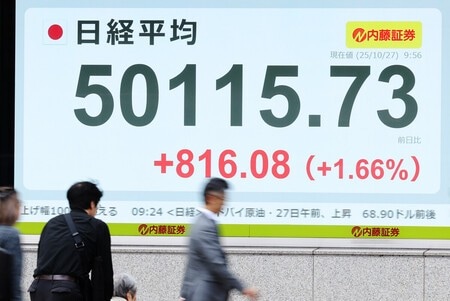Japanese stock market recently experienced an unprecedented surge as share prices crossed the momentous 50,000 yen threshold. This development brought a mix of anticipation and caution from investors around the globe. With the steady economic uplift in the country, the stock milestone showcases the increasing investor confidence, despite looming concerns about potential market volatility. Shares reaching the 50,000 yen mark has placed the global spotlight on the Japanese markets, now more than ever.
In Japan, the stock market reflects the country's economic prosperity. The 50,000 yen milestone represents a strong assertion of the Japanese economy's resilience amidst global economic turmoil. It also aligns with the government's prolonged commitment to supporting the country's businesses. This event signifies a sense of national pride, as it is seen as a strong indication of Japan's economic strength and stability. Nevertheless, it also sparks concerns about possible bubbles and overvaluations.
In the US or EU, reaching such market landmarks also generates similar sentiments of jubilation tempered with caution. It can influence policy decisions, consumer confidence, and even political discourses, given how significant the economy is as a public agenda. However, the impact is not as profound as in Japan because of the broader and more diversified financial platforms in these regions.

